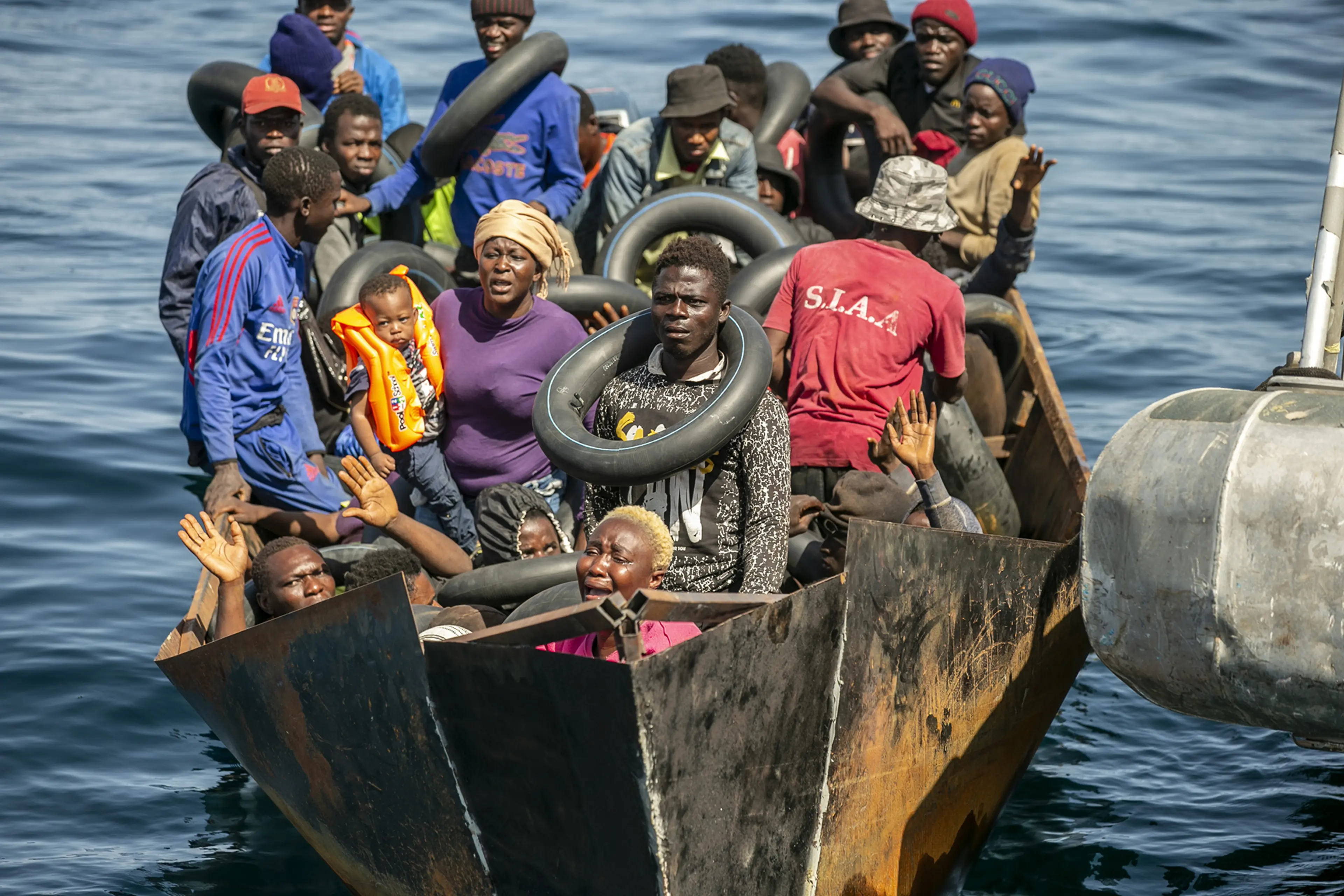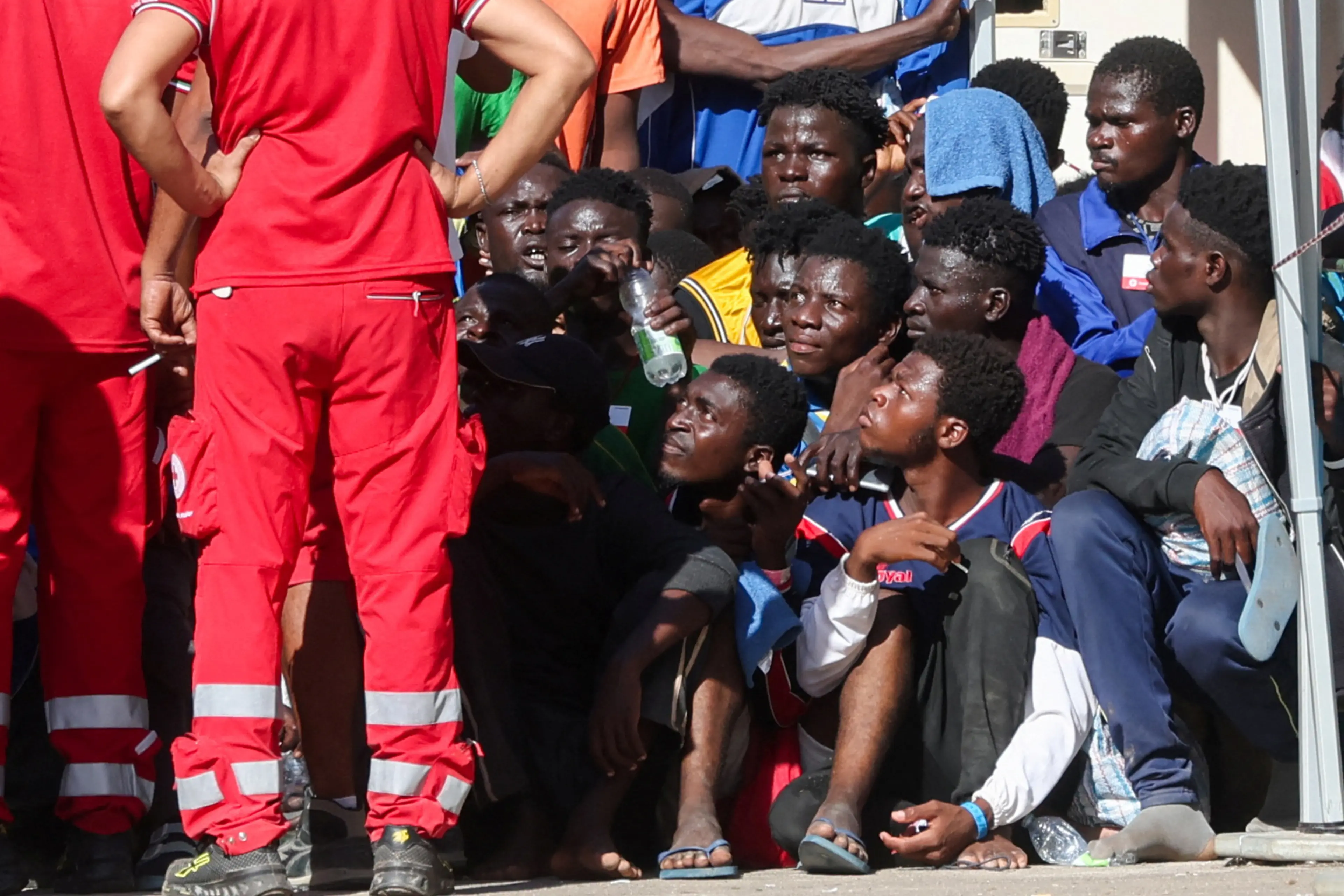The Ongoing Dilemma Posed by Handling Illegal Migrants in the EU
"The long and often arduous journey to Europe has not been a dealbreaker for the hundreds of thousands of migrants who have arrived on the continent illegally in recent years. More than 385,000 such migrants entered Europe in 2023, nearly triple the pandemic-era low in 2020. These were just a fraction of the twenty-nine million immigrants who arrived in the past decade, legally and illegally, placing significant strain on a migration system already considered ineffectual.""Migrants endure voyages on unseaworthy vessels, travel on foot through war zones or scalding deserts, and encounter predatory human smugglers or hostile locals. Last year alone, more than three thousand migrants died crossing the Mediterranean Sea to reach Europe.""But disembarking in Europe presents new hurdles. Politicians have pledged to crack down on what they call a migration crisis, especially those from far-right parties, which are gaining support ahead of European Parliament elections in June. Meanwhile, European Union (EU) countries are grappling with how to balance stronger border enforcement with concerns over human rights and migrant safety."Council on Foreign Relations
 |
| SFAX, TUNISIA: Irregular migrants face many risks en route to Europe, including a dangerous voyage on the Mediterranean Sea. Yassine Gaidi/Anadolu Agency/Getty Images |
The number of migrants now crossing into European Union countries has decreased dramatically from the highs seen last year, following the years-long efforts by Europe to limit unauthorized migrants entering by land and sea, with the instituting of increasingly tough policies on accepting migrants. Fewer migrants may be crossing into countries of the EU, but anti-immigrant sentiment has been growing, considerable harsher policies are being raised by established political parties that would never have considered them years earlier.
Italian Prime Minister Giorgia Meloni has been attempting to send migrants that have been rescued in the Mediterranean, to Albania. One of the premier welcoming countries in the migration wave of 2015, Germany now has upgraded patrols to all of its land borders. For its part, Poland has plans to introduce legislation temporarily suspending the right of new arrivals to ask for asylum. Anti-immigrant political parties have emphasized uncontrolled migration with a dilution of national identity. Europeans are concerned the influx of migrants is too difficult to manage, frustrated that some 80 percent of failed asylum seekers evade deportation.
Notably, the Christian Democratic party of former German chancellor Angela Merkel who fulsomely gave welcome to immigrants in 2015 is pressing now to have more restrictive measures, a move that has given them a lead in the polls. "The far right is the mainstream when it comes to migration now", observed Susi Dennison, senior fellow at the European Council on Foreign Relations.
A 2018 EU report reached the conclusion that forwarding asylum seekers to third countries rather than processing their requests was impermissible under EU and international law. Now, however, Ursula von der Leyen, president of the European Commission, gave praise to Italy's plan as "out-of-the-box thinking". Ms. Meloni's plan would see migrants screened in Albania, and remain in detention centers there, awaiting decisions on their asylum application. An Italian court questioned whether asylum seekers from unsafe countries could be held in Albania.
The rejection of asylum seekers can be complex, when the migrants' countries of origin refuse to receive them in a return to their origins. During that time when the deportation order is in place, migrants are able to move undetected to other countries in the bloc. There are few restrictions on travel between many European nations under the Schengen Agreement.
While no clear way to legally deport failed asylum seekers has been identified, a challenge exists to find countries willing to take failed asylum seekers. "There is a lot of hot air in terms of what could be done next", observed Raphael Bossong, a researcher at the German Institute for International and Security Affairs.
 |
| LAMPEDUSA: This immigrant reception center is one of four such “hot spots” in Italy where new arrivals are first hosted after crossing into Europe. Yara Nardi/Reuters |
Labels: Asylum, European Union, Illegal Migrants, New Stricter Regulations

0 Comments:
Post a Comment
<< Home